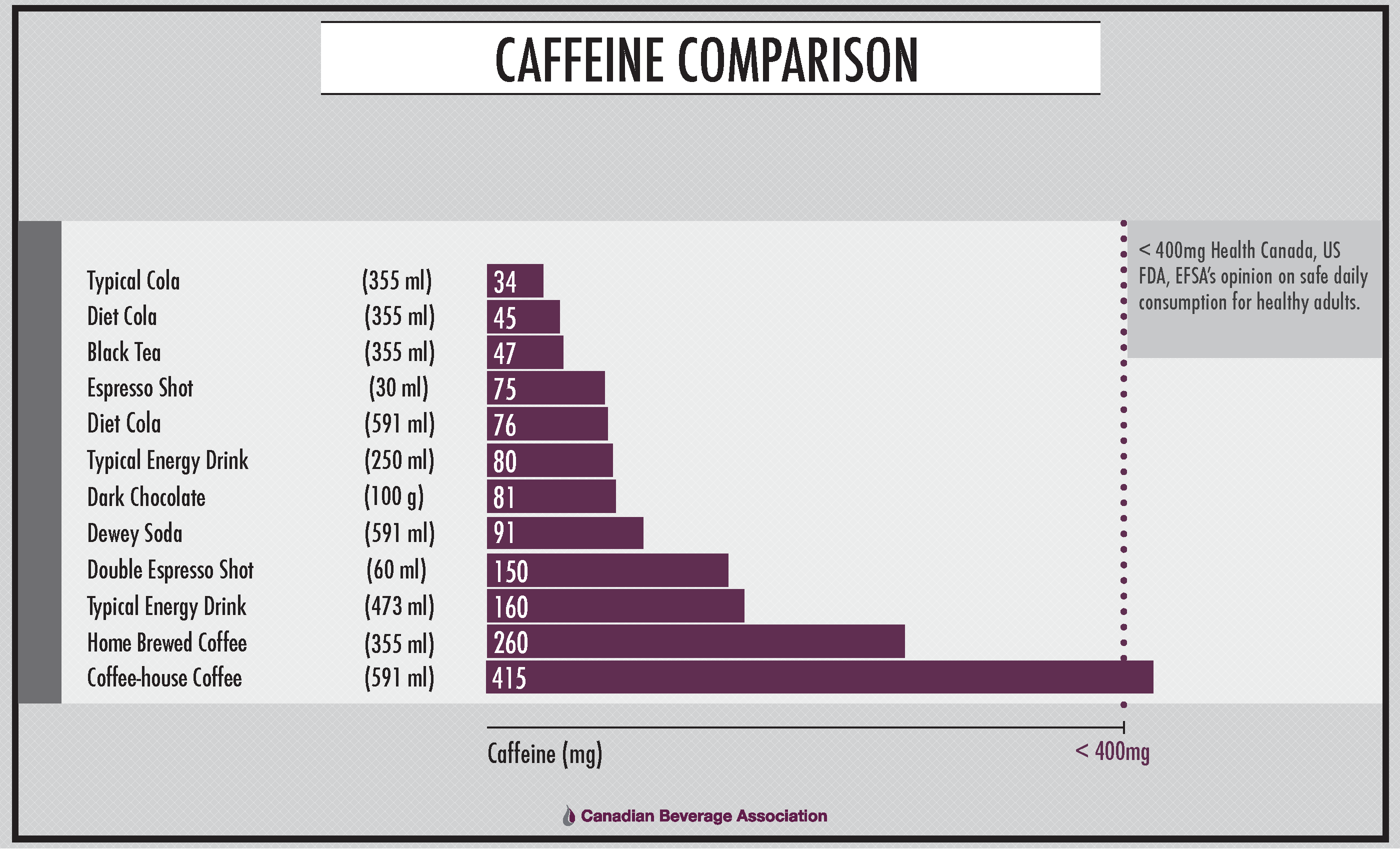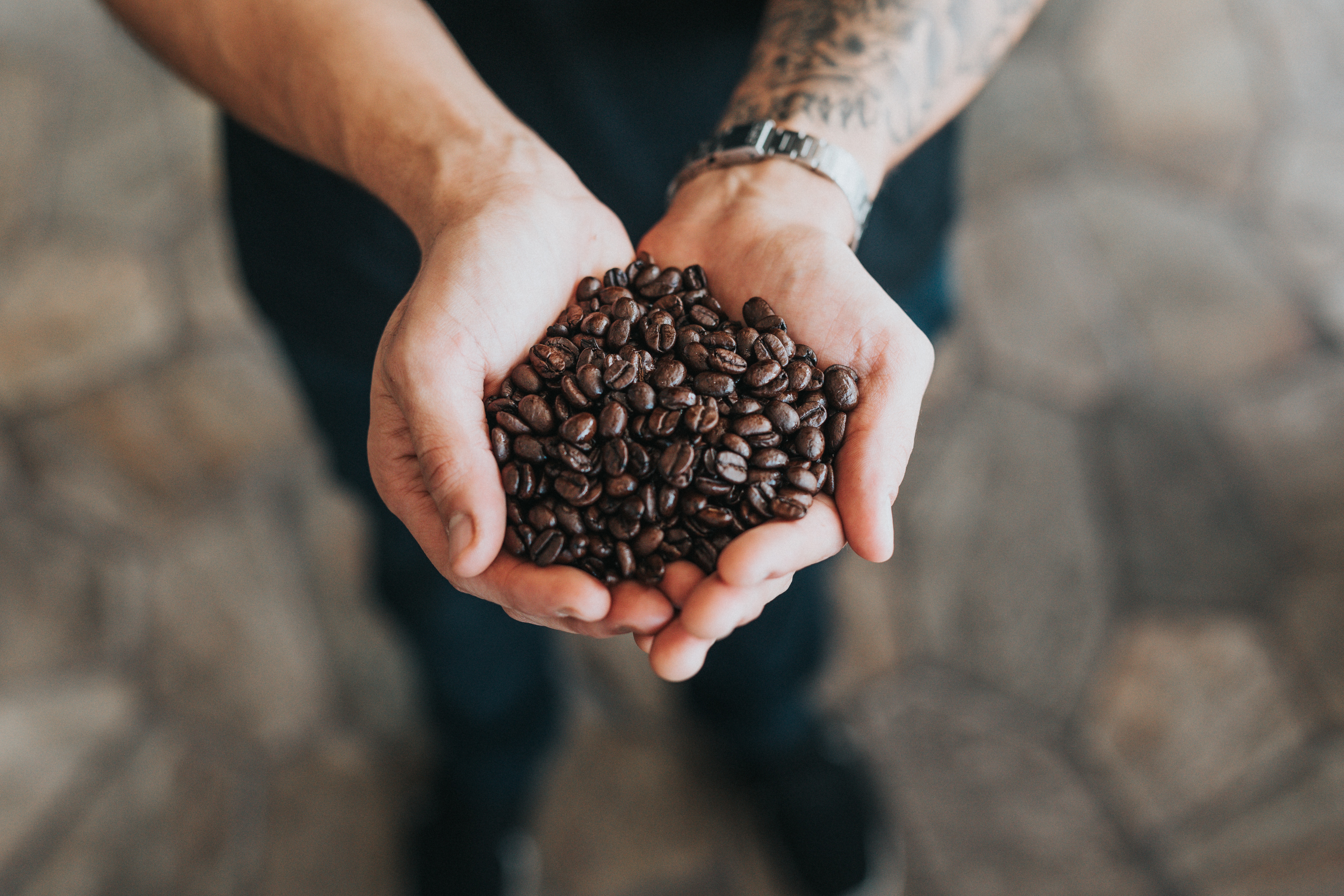Caffeine is one of the most popular yet misunderstood topics in the field of nutrition and health.
People have heard so many different things about it, but no one really knows what’s myth and what’s reality.
Today’s article will set the record straight.
My colleague Nat works with caffeine for a living and is going to give us the lowdown on the truth behind caffeine.
The (Caffeine) Grind
Natalia Kot, MHSc, RD
March marks National Nutrition Month in North America, and Caffeine Awareness Month in the US, meaning that it’s the perfect time to refresh our knowledge on the health effects of caffeine.
Whether it’s a cold-brew coffee, matcha tea, latte, soda, energy drink or that piece of chocolate – caffeine is an ingredient that has found a place in most people’s everyday routine!
What is it anyway?
Caffeine is a bitter alkaloid found naturally in the leaves and seeds of more than 60 plants worldwide (think tea leaves, cacao and coffee beans, kola nuts, yerba mate, and guarana). Caffeine can also be synthetically produced (in a lab) and added to food products such as soft drinks, energy drinks, dietary supplements, and medications.
I know what you’re thinking – natural is better… right? The truth is that caffeine from different sources, whether natural or synthetic, is chemically identical and your body does not recognize the difference – so no matter where it’s coming from, caffeine has the same effect.
What does it do to me?
Caffeine stimulates the central nervous system, which controls most functions of the body and mind. It has been known to improve mental alertness and reduce perception of fatigue – making it one of the most popular “pick-me-ups” in the world!
Caffeine’s stimulating effects on the body have also been found when it is used in sport – helping most athletes to exercise at optimal intensity for longer (Position of Dietitians of Canada, The Academy of Nutrition and Dietetics, & The American College of Sports Nutrition; Feb 2016).
Andy himself identifies caffeine as one of the only five sports supplements on the market that is actually effective at improving sports performance.
But – as is the case with most things – moderation is key! Most caffeine lovers, and those that are caffeine-sensitive, would be familiar with some of the less positive effects of consuming too much caffeine – disrupted sleep, anxiety, headaches, and irritability may be experienced.
So how much is too much?
Here’s what Global Health Authorities have to say about the recommended limits to caffeine intake:
Health Canada* considers 400 mg of caffeine per day from all sources to be a safe, moderate amount that can be consumed daily for the general healthy adult population. This amount has also been confirmed by other health authorities around the world including the US FDA, cited in their 2015 Dietary Guidelines for Americans and the European Food Safety Authority (EFSA), cited in their 2015 Comprehensive Scientific Opinion on the Safety of Caffeine.
ILSI North America also recently (2017) conducted a systematic review which confirmed these longstanding caffeine intake recommendations. Adverse health effects were not associated with the consumption of 400 mg of caffeine daily in adults, while consumption of 300 mg daily for pregnant women and 2.5 mg/kg daily for children and adolescents still remain acceptable.
However, when it comes to caffeine-sensitive individuals (including those with existing medical conditions) and pregnant or breastfeeding women*, caffeine consumption should be monitored and these populations should consult with their medical practitioners for specific advice.
*Health Canada considers 300 mg of caffeine daily to be a safe amount for pregnant and breastfeeding women to consume.
What does 400 mg of caffeine look like?
It all depends what you’re sipping! If you’re an avid home-brewer, 240 ml (just under a cup) of coffee will contain 95 mg of caffeine while the same amount of coffee brewed at your local coffee house can contain almost double at 180 mg. Enjoy your caffeine cold? A typical caffeinated energy drink contains 80 mg of caffeine per 250 ml while trendy cold-brews can pack 150 mg of caffeine into a 355 ml serving!
Check out the infographic below, resources listed at the end of this article OR consult your coffee shop’s nutrition facts section online for common caffeine contents.

Does caffeine dehydrate?
In 2004 the Institute of Medicine concluded caffeinated beverages are NOT dehydrating and can count toward your total daily water intake. This notion is supported by modern sports science research as well. How’s that for myth busting?
Getting Down to the (Caffeine) Grind
Caffeine is not an essential nutrient – but it is a personal and learned part of our everyday lives. You may encounter caffeine in multiple foods (coffee, tea, chocolate, energy drinks) throughout the day so it’s important to monitor your overall consumption.
Helpful Resources:
https://www.dietitians.ca/Your-Health/Nutrition-A-Z/Caffeine/Food-Sources-of-Caffeine.aspx
http://www.foodinsight.org/caffeine-amount-safe
Natalia Kot, Product Communications Manager for Red Bull Canada



